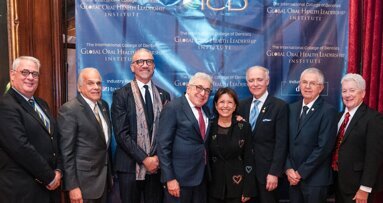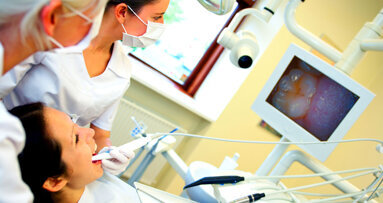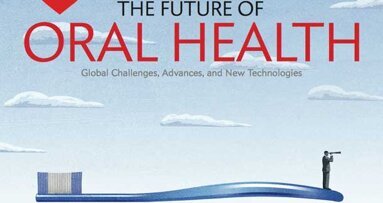NEW YORK, NY, USA: The Institute of Medicine (IOM), an independent, nonprofit organization that works outside of government to provide unbiased and authoritative advice to decision makers and the public, recently issued a report, Advancing Oral Health in America, in which it offers key recommendations to the U.S. Department of Health and Human Services (HHS).
The report, which was commissioned by the Health Resources and Services Administration (HRSA), builds on and supplements the 2000 Surgeon General’s Report, Oral Health in America, and the National Call to Action to Promote Oral Health in 2003.
“The committee recognizes that bringing disparate sectors together to effect significant change is a daunting task but well suited to the mission and responsibilities of HHS,” the report states. “Every effort needs to be made by HHS to collaborate with and learn from the private sector; other public sector entities at the local, state and national levels; and patients themselves toward achieving the goal of improving the oral health care and, ultimately, the oral health of the entire U.S. population.”
The report outlines seven recommendations, which are referred to as the new Oral Health Initiative (NOHI):
- The Secretary of HHS should give the NOHI leaders the authority and resources needed to successfully integrate oral health into the planning, programming, policy and research that occurs across all HHS agencies and programs.
- All relevant HHS agencies should promote and monitor the use of evidence-based preventive services in oral health (both clinical and community-based) and counseling across the life span.
- All relevant HHS agencies should undertake oral health literacy and education efforts aimed at individuals, communities, and health care professionals.
- HHS should invest in workforce innovations to improve oral health that focus on core competency development, education, and training to allow for the use of all health care professionals in oral health care; interprofessional, team-based approaches to the prevention and treatment of oral diseases; better use of new and existing oral health care professionals; and increasing the diversity and improving the cultural competence of the workforce providing oral health care.
- The Centers for Medicare and Medicaid Services (CMS) should explore new delivery and payment models for Medicare, Medicaid, and the Children’s Health Insurance Program (CHIP) to improve access, quality, and coverage of oral health care across the life span.
- HHS should place a high priority on efforts to improve open, actionable, and timely information to advance science and improve oral health care through research.
- To evaluate the NOHI, leaders should convene an annual public meeting of federal agency heads to report on progress.
“The Committee on an Oral Health Initiative reaffirms that oral health is an integral part of overall health and points to many opportunities to improve the nation’s oral health,” IOM President Harvey V. Fineberg, M.D., Ph.D., said in a foreword to the report. “We issue this report in the hope that it will prove useful to responsible government agencies, informative to the health professions and public, and helpful in attaining higher levels of dental health.”
The report has been well received by the American Dental Education Association (ADEA).
“The IOM report is a clarion call to action, particularly in areas necessary for successfully maintaining oral health as a public health priority: strong leadership and the sustained interest and involvement of multiple stakeholders,” said Leo E. Rouse, DDS, president of the ADEA. “It tackles the challenges associated with health disparities and access to care while, at the same time, demonstrating an awareness of and sensitivity to disputed workforce issues. Likewise, it appropriately emphasizes the important role the federal government has in advancing the oral health of the nation.”
FLINT, Mich., US: On 29 April, the International College of Dentists (ICD) hosted its second Stakeholders’ Day, in Boston in the US. The day’s ...
DALLAS, Texas, USA: Airway Management, Texas-based supplier of products for improving the health and quality of life for people who suffer from ...
NEW YORK, US: The International College of Dentists (ICD), in partnership with Henry Schein, celebrated the launch of the Global Oral Health Leadership ...
Oral health care providers and patients will soon receive more frequent, evidence-informed recommendations to advance oral and overall health with the ...
GRAND RAPIDS, Mich., US: The issues causing a significant divide in the standard of care and general oral health among the American population are vast and ...
NEW YORK, NY and SAN JOSE, CA, USA: The Institute for Oral Health will host its fourth annual national conference, Defining Quality in Oral Health Care, at ...
LOUISVILLE, Ky., USA: University of Louisville School of Dentistry student Jae Lee has received a four-year individual grant from the National Institutes of...
NEW YORK, N.Y., USA: The impact of oral disease on whole-body health and the changes to the practice of dentistry worldwide are the subjects of “The ...
The Advanced Surgical and Prosthetic Master of Oral Implantology Program is offered exclusively by the California Implant Institute (CII) in collaboration ...
COLUMBIA, S.C., US: Growing evidence continues to demonstrate the far-reaching impact of oral health on systemic well-being. Just recently, two new studies ...
Live webinar
Tue. 3 February 2026
7:00 PM EST (New York)
Live webinar
Wed. 4 February 2026
11:00 AM EST (New York)
Live webinar
Thu. 5 February 2026
2:30 PM EST (New York)
Dr. Boota Ubhi BDS, FDS RCS (Edin), MDentSci, MRD RCS (Eng) Specialist, Cat Edney
Live webinar
Thu. 5 February 2026
8:00 PM EST (New York)
Dr. Zeeshan Sheikh Dip.Dh, BDS MSc, M.Perio, PhD, FRCDC, Dip-ABP
Live webinar
Tue. 10 February 2026
7:00 PM EST (New York)
Prof. Dr. Wael Att, Dr. Robert A. Levine DDS, FCPP, FISPPS, AOD, Dr. Larissa Bemquerer ITI Scholar at Harvard
Live webinar
Wed. 11 February 2026
11:00 AM EST (New York)
Dr. med. dent. Sven Mühlemann
Live webinar
Wed. 11 February 2026
12:00 PM EST (New York)
Prof. Dr. Samir Abou Ayash



 Austria / Österreich
Austria / Österreich
 Bosnia and Herzegovina / Босна и Херцеговина
Bosnia and Herzegovina / Босна и Херцеговина
 Bulgaria / България
Bulgaria / България
 Croatia / Hrvatska
Croatia / Hrvatska
 Czech Republic & Slovakia / Česká republika & Slovensko
Czech Republic & Slovakia / Česká republika & Slovensko
 France / France
France / France
 Germany / Deutschland
Germany / Deutschland
 Greece / ΕΛΛΑΔΑ
Greece / ΕΛΛΑΔΑ
 Hungary / Hungary
Hungary / Hungary
 Italy / Italia
Italy / Italia
 Netherlands / Nederland
Netherlands / Nederland
 Nordic / Nordic
Nordic / Nordic
 Poland / Polska
Poland / Polska
 Portugal / Portugal
Portugal / Portugal
 Romania & Moldova / România & Moldova
Romania & Moldova / România & Moldova
 Slovenia / Slovenija
Slovenia / Slovenija
 Serbia & Montenegro / Србија и Црна Гора
Serbia & Montenegro / Србија и Црна Гора
 Spain / España
Spain / España
 Switzerland / Schweiz
Switzerland / Schweiz
 Turkey / Türkiye
Turkey / Türkiye
 UK & Ireland / UK & Ireland
UK & Ireland / UK & Ireland
 International / International
International / International
 Brazil / Brasil
Brazil / Brasil
 Canada / Canada
Canada / Canada
 Latin America / Latinoamérica
Latin America / Latinoamérica
 China / 中国
China / 中国
 India / भारत गणराज्य
India / भारत गणराज्य
 Pakistan / Pākistān
Pakistan / Pākistān
 Vietnam / Việt Nam
Vietnam / Việt Nam
 ASEAN / ASEAN
ASEAN / ASEAN
 Israel / מְדִינַת יִשְׂרָאֵל
Israel / מְדִינַת יִשְׂרָאֵל
 Algeria, Morocco & Tunisia / الجزائر والمغرب وتونس
Algeria, Morocco & Tunisia / الجزائر والمغرب وتونس
 Middle East / Middle East
Middle East / Middle East




























































To post a reply please login or register